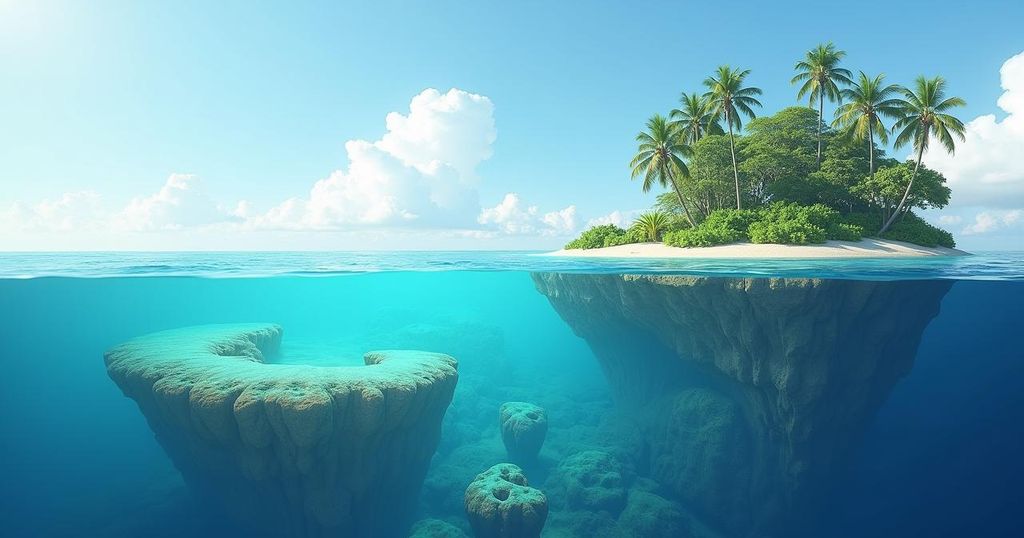Rising Seas: A Call to Action for Pacific Island Nations

U.N. Secretary-General Antonio Guterres has highlighted the severe threat of rising sea levels to Pacific island nations, calling for immediate climate action. Recent reports indicate that these nations are experiencing sea level increases at rates significantly higher than the global average, with serious implications for their populations and environments. Guterres emphasizes the need for accountability from larger nations that contribute more to global carbon emissions, urging them to assist vulnerable Pacific nations.
The U.N. Secretary-General, Antonio Guterres, has issued a profound warning regarding climate change’s impact on increasingly vulnerable Pacific island nations. At a recent climate conference in Tonga, Guterres highlighted alarming reports from the United Nations and the World Meteorological Organization, indicating that rising sea levels are escalating at an unprecedented pace, particularly in the Southwestern Pacific. These nations are not only grappling with elevated ocean levels but also with ocean acidification and marine heat waves, consequences of climate change. The urgency of Guterres’ message was underscored by the alarming statistics of rising sea levels in locations such as Tonga, where it has increased by 21 centimeters (8.3 inches) since 1990, and the rising frequency of coastal flooding across various Pacific regions. Guterres asserted, “This is a crazy situation. Rising seas are a crisis entirely of humanity’s making. A crisis that will soon swell to an almost unimaginable scale, with no lifeboat to take us back to safety,” showcasing the gravity of the predicament faced by these nations. The rising ocean levels pose grave dangers, especially to the approximately 90% of the region’s population living within 5 kilometers of the coast. Furthermore, Guterres emphasized that Pacific countries contribute a minimal share of global greenhouse gas emissions, yet they bear the brunt of climate change impacts, including rapidly rising seas stemming primarily from the melting ice in Antarctica and Greenland. He noted that richer nations must take decisive action to reduce carbon emissions and provide assistance to those nations facing existential threats. Guterres expects the Pacific nations to advocate vigorously at the upcoming United Nations General Assembly, leveraging their moral authority to demand accountability from larger polluting nations. Amid this dire scenario, local activists—such as Itinterunga Rae, leader of the Barnaban Human Rights Defenders Network—underscored the nuanced issues of displacement and cultural erosion resulting from climate change, insisting that abandoning islands is not a viable solution.
The discourse surrounding rising sea levels has gained critical attention, especially concerning their impact on the vulnerable Pacific island nations. These islands face unique challenges due to their geographical features, including low elevation, which makes them exceedingly susceptible to flooding and ecological deterioration due to climate change. Recent reports provided by the United Nations and other authoritative bodies illustrate the alarming trends of accelerating sea levels, which pose a direct threat to the livelihood and culture of the millions living in these regions. With only a minute contribution to global carbon emissions, these nations are paradoxically the primary victims of climate chaos, warranting a collective international response.
In summary, the rising sea levels present an existential threat to the Pacific island nations, with U.N. Secretary-General Antonio Guterres advocating for urgent global action to mitigate climate change impacts. As these nations prepare to voice their concerns at the United Nations General Assembly, their plight embodies the broader implications of human-induced climate change—a crisis demanding immediate and concerted efforts to address its ramifications, particularly for those least responsible for its origins.
Original Source: www.voanews.com






